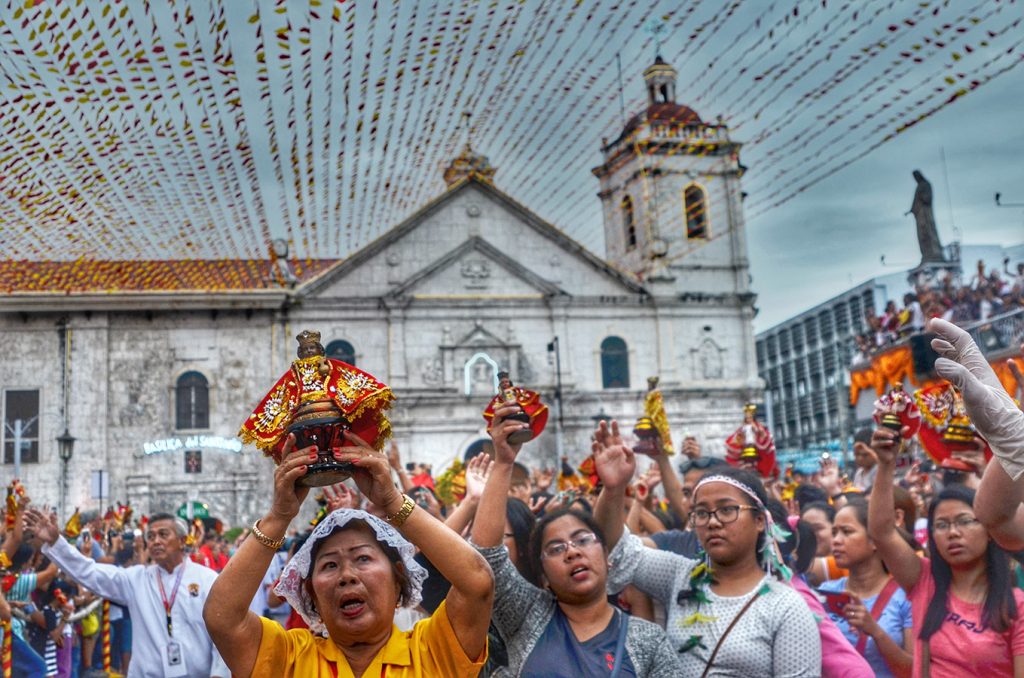
Reflection for the 2nd Sunday in Ordinary Time (Cycle C)
The story of our Lord’s miracle of turning water into wine at the wedding feast in Cana is a Johannine tale introducing the evangelist’s theological agenda of explaining the newness which our Christ intended to bring into the world through a manifestation of signs. The abundance of wine of the best quality represented the advent of a new age, the transitioning from an epoch of past mistakes to a better one filled with more courage and hope, which in this case, our Lord himself heralded through the miracle.
In other words, “newness” was inaugurated by “newness” itself, a most appropriate event following its Baptism by the Spirit of the pro-active God. It is a “newness” that takes place within the context of a matrimonial celebration, a “newness” that redefines the sacred connection between the divine and the human. The Cana miracle ushered in for us, a new divine relationship with our Father in heaven, which will never be the same again.
From that moment onwards, the pro-active Spirit challenged our own spirits to a new way of being pro-active ourselves. For not only has he taken the initiative to descend to us here suffering on earth, by suffering with us, but he has also made the decision to satisfy his own justice with mercy and compassion, so that we may make the similar decision to move beyond expectations, and to suffer for him. The sacred connection is thus redefined from one that solely seeks to restore, to one that also seeks to transform and to give back: God has not only begun to pave the way for our reconciliation with him; it is also his wish that through love, we may respond with the same intense love through heroic action and service for his kingdom of peace.
Holiness therefore does not consist of actions meant for mere compliance to ecclesiastical dictates, as if sanctity is somewhat “guaranteed” through the recitation of specific prayers at specific times, through pilgrimages to specific places, through the quantity of “church services rendered” or “number of people helped,” etc. Holiness does not carry with it a “scorecard,” nor a “record of grades,” nor a “diploma of completion.” It is and should not lend itself to an image of the Spirit tallying the “volume of sins” that must be outweighed by “certain good deeds” such that “everything balances out.” In this case, we are projecting upon God our own selfish desire to simply “meet minimum requirements,” and our own mistaken understanding that he simply “wants to call it even.”
But our Abba is much more than that. He made the crucial decision not to make us simply “pay for” our transgressions by expressing anger, but to help us to be free of it by expressing love. In expressing love and humility, he impels us to respond with the same love and humility, to try to become what he is in selflessness and faithfulness, thereby becoming regenerated extensions of himself, little mustard seeds that can eventually move mountains. Hence, we must become saints, who are transformed sinners, unsatisfied with simply “meeting minimum requirements,” and uninterested in simply “calling it even,” but who are mystically inspired to “love with all their hearts, with all their souls, and with all their minds.”
Our Father rejoices in those who shall be so transformed, in the holiness that “shines like the dawn” and in the sanctity that “flames like a burning torch.” The newness of our relationship with him is most vividly expressed in the “new name which his mouth will reveal,” a “newness” born from “newness” itself; “No longer will you be named Forsaken, no longer will your land be called Abandoned; but you will be called My Delight and your land Espoused.”
Holiness is also a praxis that can take on many different forms yet inspired by the same love: one can proclaim in the Spirit, another is moved to teach about it, while another acts with and for it; one warns in its Name, while another heals; one may be better in introspective discernment, while another excels in communicative collaboration; one may possess an uncanny rigor in critical thought, while another may be bearing a special sensitivity to the presence of what is unseen, more particularly the Beloved himself. Such a diversity is made whole and an indivisible unity through the catholicity of love, “The Spirit reveals his presence in each one with a gift that is also a service.”
The Sacraments of Baptism and Confirmation are but a single pathway to holiness. We are glorified when we allow God to manifest himself in us; we in turn glorify him when we strive to manifest him to a humanity gone astray. It is the only sensible thing we can do for love.
Brother Jess Matias is a professed brother of the Secular Franciscan Order. He serves as minister of the St. Pio of Pietrelcina Fraternity at St. Francis of Assisi Parish in Mandaluyong City, coordinator of the Padre Pio Prayer Groups of the Capuchins in the Philippines and prison counselor and catechist for the Bureau of Jail Management and Penology.
The views expressed in this article are the opinions of the author and do not necessarily reflect the editorial stance of LiCAS.news.
Source: Licas Philippines
0 Comments